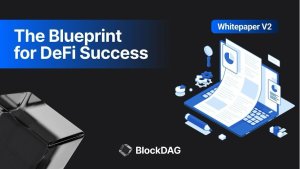America’s FX industry burning issues. Important anecdotes on the minds of our senior leaders
America remains extremely upbeat as clever prime brokerage solutions, innovative means of conducting direct market access and strong capital bases are testimony to top quality leadership.

There is a surprising and much misunderstood aspect of the North America’s well established electronic trading business which is constant throughout the entirety of its components, that being the relative openness of those who preside over it and are charged with the responsibility of leadership positions among the continent’s most widely recognized brokerages, technology providers and liquidity aggregators.
Last week, at the FinanceFeeds New York Cup networking event in downtown Manhattan, the thought leaders and senior executives whose innovations and commercial decisions shape the entire infrastructure of the world’s FX industry were very keen to discuss the important issues that are current and vital.
Perhaps unsurprisingly, one of the most poignant matters is the reduction in credit that has blighted the entire OTC derivatives sector since the Tier 1 banks began to consider the counterparty credit risk in retail FX to be higher than they are prepared to underwrite, thus maintaining a relationship with the banks is almost as challenging as attempting to establish new relationships.
During the course of this year, opinions have varied as to how much capital is required in order to establish a prime brokerage relationship with a major interbank FX dealer, and in Britain, it ranges between $50 million to $100 million depending on the risk assessment and due diligence carried out by the bank on the brokerage, and even then, there may be no credit extended.
In America, the contraction of availability of credit has certainly also taken its toll, and following the Swiss National Bank’s removal of the 1.20 peg on the EURCHF pair in January 2015 which caused a number of brokerages to be exposed to negative client balances has been a factor in the calculations made by Citigroup – the world’s largest FX dealer with 16.1% of all global order flow going through its books – that the extension of counterparty credit to OTC derivatives firms represent a potential 56% default rate.
Thus, many executives within America’s largest firms believe that gaining a new prime brokerage is difficult, but not as difficult as it is in Europe, however the general consensus is that maintaining existing prime brokerage agreements in America is not such a difficult matter.
One of the factors that makes for much more comfortable prime brokerage relationships between domestic brokerages and the banks in America compared to other regions is the necessity to maintain publicly available reports of financial metrics each month, which are published on the CFTC website.
This allows for a continual and accurate set of figures which banks can refer to on a real time basis in order to assess their risk according to not just brokerage performance, but also the structure of the company and its capitalization.
The banks that provide Tier 1 liquidity to America’s brokerages are the same firms as those which provide it to British or Australian firms, however risk assessment and continual chekcks and balances are somewhat easier to perform in the United States due to the detailed reporting of metrics that are required by the CFTC and NFA.

The condition of America’s retail FX brokerage industry is absolutely sterling, a dynamic that is reflected by the upbeat nature of its enthusiastic leaders, whose relaxed and composed prose during the FinanceFeeds New York Cup event was matched by their unfaltering interest and wish to continue to seek very astute methods of improving and furthering the business on an ongoing basis.
Unlike regions outside of North America in which there have been exits from the markets of brokerages and in which the banks have held many OTC firms at arms length with the gap between the control that the banks have on the industry, America is somewhat different.
It was pointed out several times last week that in America, some of the electronic trading divisions of the major interbank FX dealers are not that much more highly capitalized than the brokers themselves, putting the large brokerages in a position of power.
On this basis, making sure that orders are processed directly with the bank is a relative breeze in America compared to some other regions.
As an example, many dissenters were quick to write off the future of FXCM, which is one of the world’s longest established and largest retail FX firms following its exposure to the negative client balances of January 2015’s Swiss National Bank event, however this was absolutely misguided.
Yes, the company took a $300 million loan, however the risk assessors look at capitalization when extending prime brokerage or operational services to FX firms, and FXCM has a net adjusted capital figure amounting to $49.5 million, when it is only required by the NFA to maintain $27.7 million.
Deutsche Bank Securities, which is the US-based investment bank division of Deutsche Bank that provides security brokerage services is capitalized to the tune of $12.5 trillion, thus the figures absolutely stack up.
Despite the position of strength, many technology and integration systems providers in America are looking at investigating other methods of providing direct market access to FX brokerages that do not require such large capitalization. One such example is all new prime brokerage Noble Markets whose modus operandi was the talk of the week during many meetings attended by FinanceFeeds across North America, as well as during the New York Cup event itself.

Noble Markets is a vertically-integrated prime brokerage platform which provides real-time clearance and settlement to the FX spot markets, the idea being to simplify market structure and is available to absolutely any institutional client which passes compliance checks, enabling almost all firms regardless of circumstance to clear on the Noble platform.
On this basis, the firm differs from most other primes in that it is a peer-to-peer system that removes the need for 3-way, 4-way and give-up agreements.
This is currently of great interest across the board, and could be a boon for integration and liquidity management firms as well as for brokerages.
Similarly, the need for new methods of clearing were highlighted last week on several occasions. Firms such as XTX and Citadel Securities, non-bank providers that are very popular in the United States, according to many sources, will solve the matter of having to produce large balance sheets to banks in order to gain credit as well as providing excellent spreads.
There are certain downsides which can arise, one that is commonly recognized in the United States is that whilst the spreads are competitive, there are some non-bank liquidity providers in the market with which the fill rate can be as low as 60% whereas banks will fill all orders.
The additional advantage that institutional divisions of FX firms in the United States have is that their structure is highly multi-faced and comprises more than just the provision of a price feed to brokerages lower down the chain.
GAIN Capital’s GTX Direct is a good example, as it comprises both bank-related prime brokerage relationships as well as a fully independent ECN. Offering a divese marketplace comprising large banking institutions as well as high frequency traders, hedge funds, and high net worth individuals along with a central clearing facility that allows firms to access the liquidity of and trade with ALL other participants, on either a disclosed or non-disclosed basis is a very interesting component indeed.
Looking toward 2017, the future is very bright indeed, and whilst clearing costs and exchange membership fees on large listed derivatives marketplaces in Chicago continue to mean that there is no likelihood of firms going on exchange in America, the OTC division’s stalwarts are going from strength to strength, which is indeed excellent to see.









